How many young people complete their training, only to realize that getting employed will not be as easy as they thought? This is a common occurrence among those who were either desperate to seize any opportunity that came their way or those whose dreams were unrealistic. Factors such as a lack of starting capital, limited resources, or getting married right after completing training can hinder graduates’ ability to start a new business or find employment. It is crucial to consider these factors and ask important questions about sustainable employment before committing to skills development programs.
Have you ever considered viewing your career as a lifelong project? In regions that are becoming increasingly fragile, it can be challenging for young people, especially in rural areas, to find fulfilling careers. The Life Project Approach, which was developed through the Naafa and PASSAGE youth employment projects, is changing this narrative.
The approach goes beyond traditional skills development methodology, which focuses on finding a job based on market studies. Instead, it aims at developing the whole person, building on their values and goals, and incorporates a realistic look at an individual’s resources and family support. It also provides a space for young people to think creatively and explore non-traditional career paths through a participatory approach that empowers them to take control of their futures.
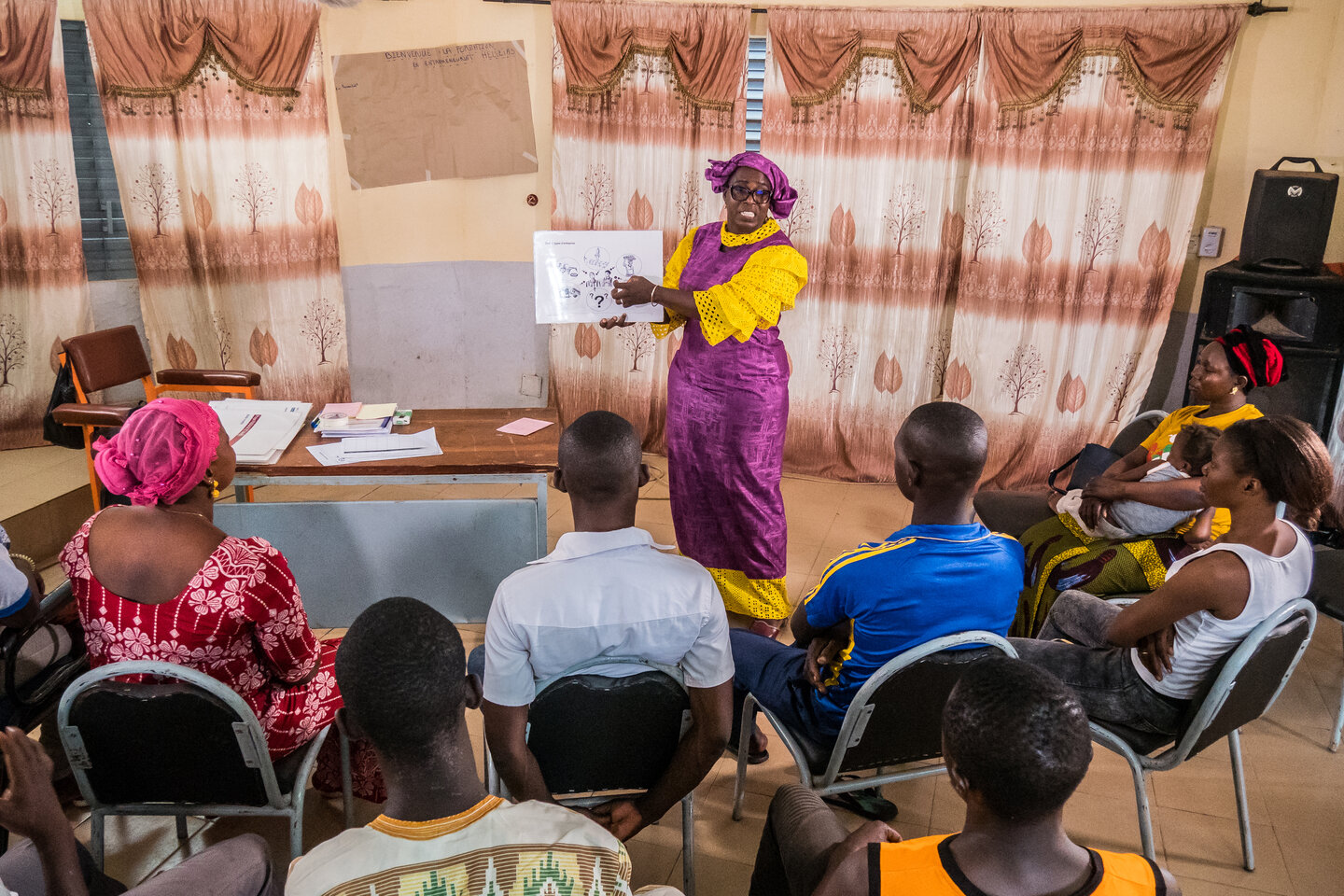
Vocational training projects are typically designed with the rationale that skills development must be market-oriented, lead to (self-)employment and respond to the needs of employers. These elements are indeed essential. The attainment of these goals involves a linear implementation process, beginning with a labor market assessment and followed by the creation of training content and the recruitment of young people. However, issues arise either during or after training when trainees come to the realization that the available jobs do not align with their aspirations, they lack the necessary competencies for success in these roles, or they do not possess the resources required to start their own business.
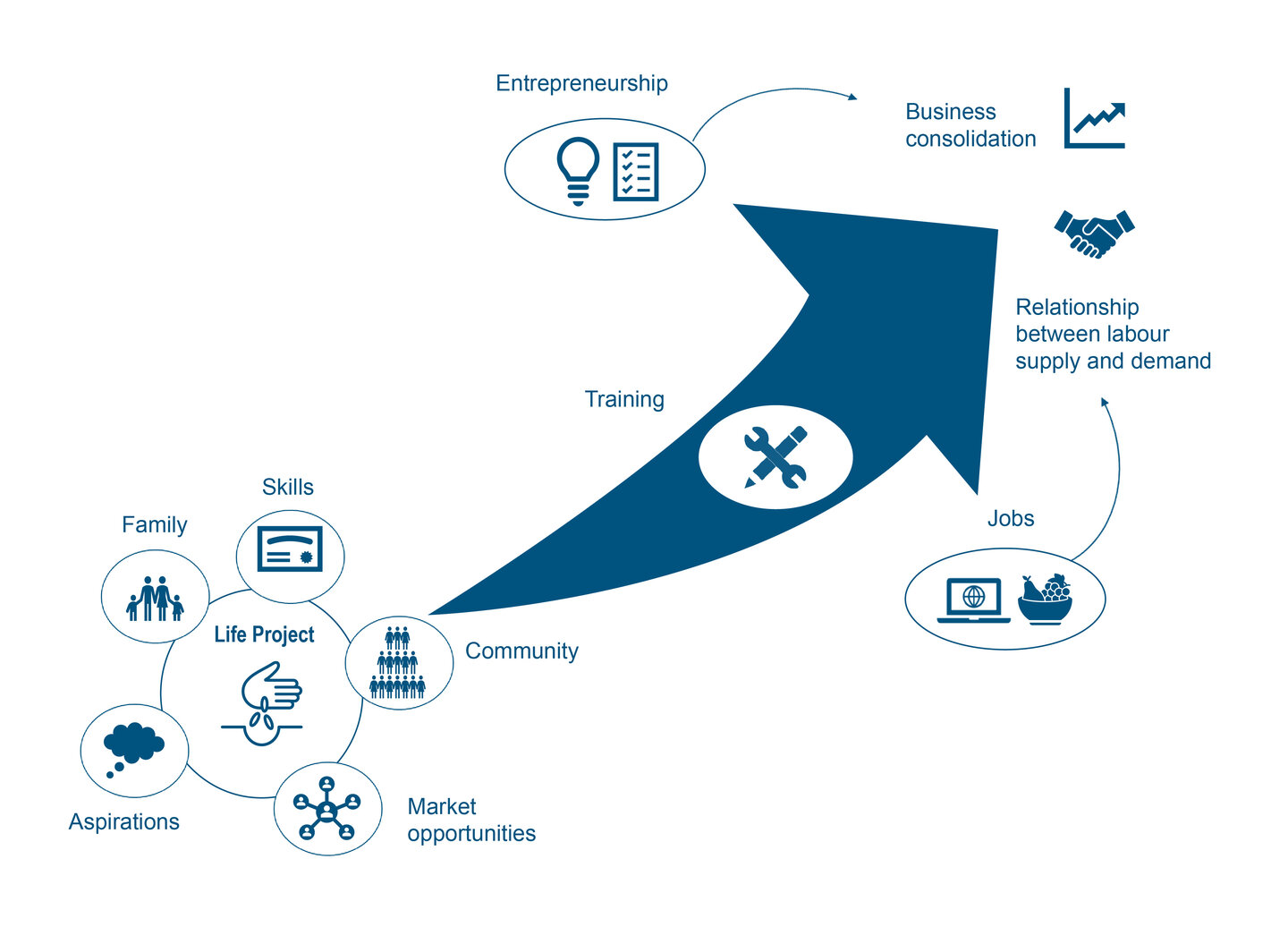
Ensuring market demand is vital for effective skills development — but it is not enough. The Life Project Approach goes beyond market orientation and provides a pre-training framework for young people to take into account the bigger picture and to support their efforts to reach insertion in the marketplace, even when the context is fragile. The approach is based on the Assessment and Valorization of Skills (Démarche Bilan et Valorisation de Compétences - DBVAC), and builds upon a good understanding of a young person’s cultural context and socio-economic mechanisms, encouraging participants to look for opportunities beyond the ones traditionally offered by formal training centers. Social services such as childcare or working as a socio-cultural facilitator or community events organizer are for instance seen as viable employment pathways.
The Life Project is discussed with the young person’s household, extended family and community to validate its feasibility in relation to their skills and to bring together the local forces and resources necessary for its successful implementation. This extensive look at a young person’s environment and support systems is a reminder that career guidance should not just be about finding a way to pay the bills; it should also be about helping young people create a vision for their future that aligns with their passions and values and allows them to lead fulfilling lives.
Seeking career guidance information centers in rural Africa
The Life Project Approach, which was developed by Helvetas Burkina Faso and funded by the SDC program contribution through the Naafa project and by the European Union through the PASSAGE project, has been instrumental in training more than 4,300 young people, including 2,400 women, in six municipalities along the Bobo-Dioulasso to Banfora economic corridor. It has rapidly gained attention from other donors in Burkina Faso, including the German Agency for International Cooperation and Austrian Development Agency. These organizations have recognized the pre-training step as a missing link in current youth projects, highlighting its effectiveness and relevance. The Life Project Approach is now also proving relevant in contexts that share similar patterns to Burkina Faso (i.e., rural, predominance of agriculture, very young population, rural-urban migration due to lack of formal jobs, Internally Displaced People arriving in the area) such as northern Mozambique, where the Swiss Development Cooperation launched the SIM! Project, which is utilizing this approach.
In Switzerland, vocational guidance centers provide educational and career orientation to help individuals make solid decisions. However, in Mozambique, these facilities do not exist, leaving young people in remote villages without access to important information and advice. But where is it sensible to locate these facilities in remote villages? What would an effective scheme for post-training support look like in these settings? What labor market information would they provide in a context where more than 80% of the workforce is engaged in agriculture and mainly self-employed? How can we make these services sustainable given the lack of financial opportunities for vulnerable youth?
The Life Project Approach can provide solutions for these challenges through localized orientation services and job placement tools. For example, motorbike repair shops and hairdressers are popular places in northern Mozambique where artisans are recognized by the community and can play a mentoring role. They also share essential labor-market information for a diversity of youth profiles. Program trainees in Mozambique have a median age of 20, and 78% are school dropouts (40% did not study further than class 7), mainly due to economic reasons (85%) or distance from the school (8%). 78% say they are aiming at self-employment rather than formal employment, mainly because 77% have responsibilities cultivating land within their family. By supporting the decentralization and professionalization of pre- and post-training support, this approach can complement vocational skills development in northern Mozambique and provide systemic support to youth in transition.
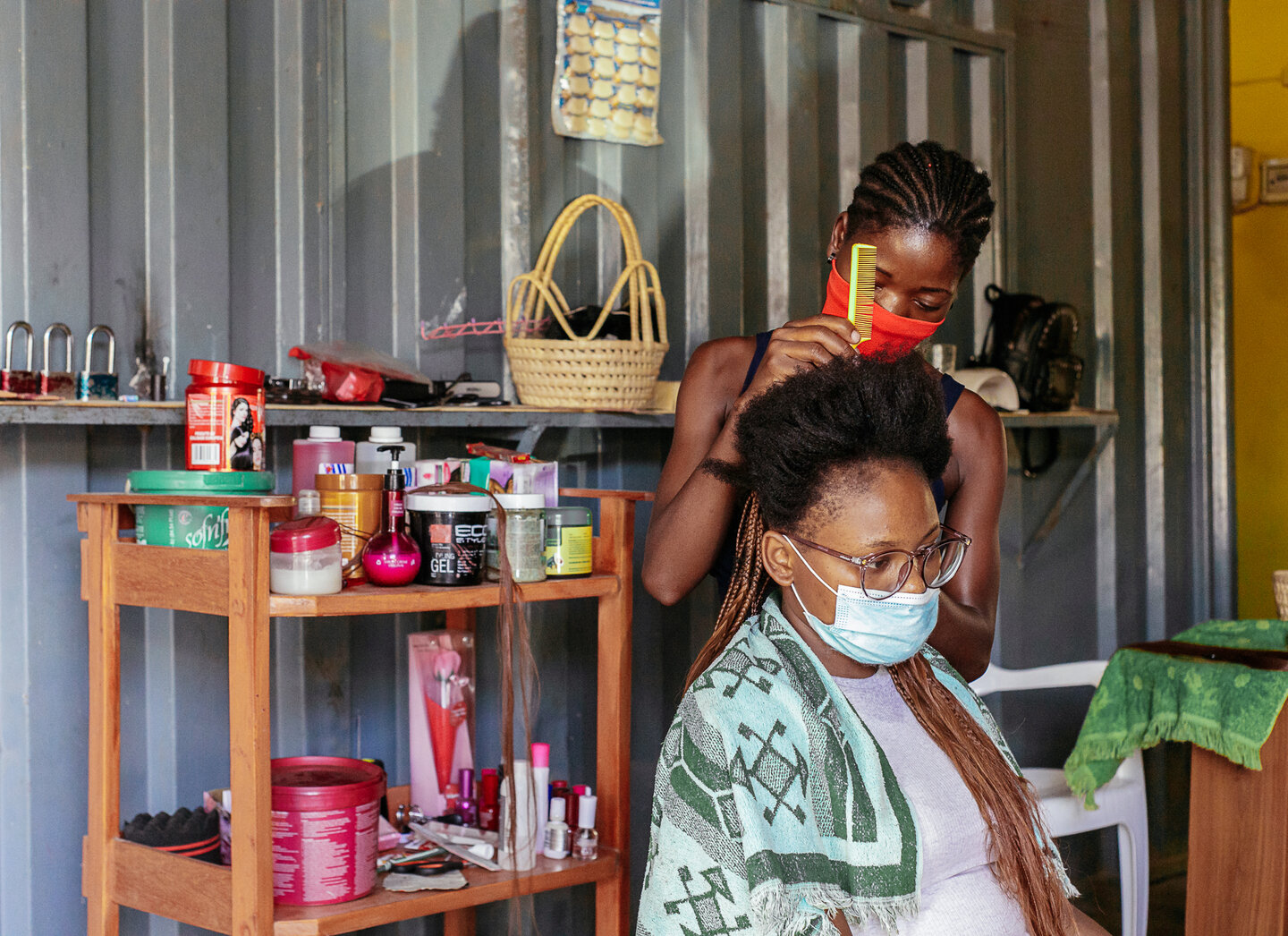
Social capital can unlock youth potential
The Life Project Approach stands out for its focus on community ties, which can make a big difference for successful employment and entrepreneurship. While young people's skills are important factors in finding work, their resources and the support of their social networks are equally crucial. In today's job market, knowing how to leverage personal relationships and connections can be the key to unlocking new opportunities. By emphasizing the importance of community networks, the Life Project Approach is helping equip young people with the skills and knowledge they need to succeed in a rapidly changing world.
In Burkina Faso, the approach has been used to successfully optimize community connections by bringing together different community actors to support young people in building networks. By leveraging the existing relationships between trainers and businesses, the program has helped young people become more connected and engaged. Central to this effort is the concept of the Local Service Provider (LSP), a role filled by people such as Romaric Guel, an individual who was already recognized as a valuable resource and professional within the community. Candidates for the LSP role are selected based on their motivation, technical skills, availability and dedication, and must be recommended by the local branch of the National Youth Council, the main implementing partner of the project, which has been capacitated to deliver training on the Life Project. Once selected, they participate in a comprehensive training program to learn how to facilitate group and individual counseling sessions and demonstrate good practices. With a pool of 30 trained LSPs now available to support young people in Burkina Faso, this program is helping to create a stronger, more resilient community that is better equipped to face the challenges of the future.
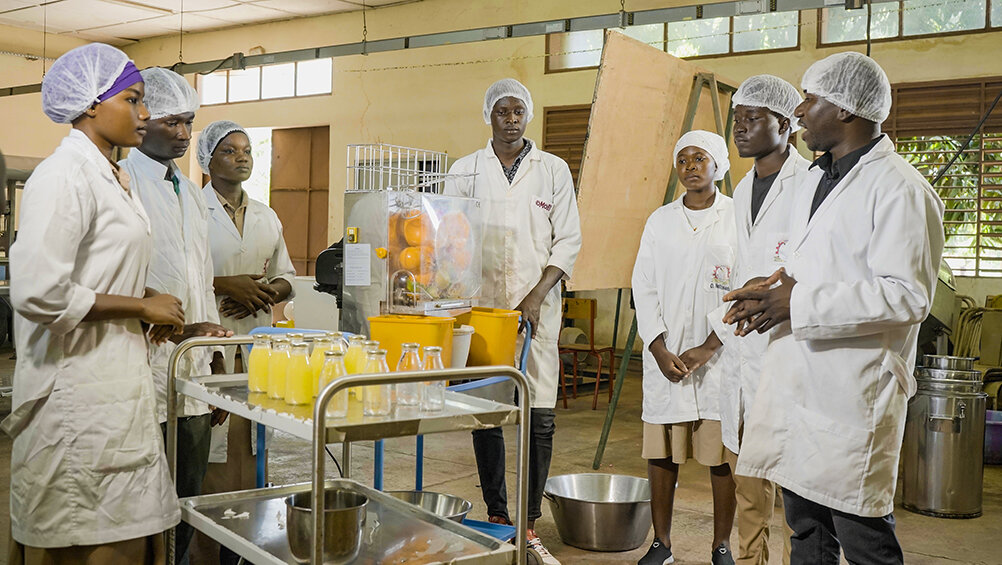
LSPs have proven to be effective mentors and life coaches, and play a pivotal role in helping young people build meaningful relationships and tap into the resources they need to succeed. Through LSPs, young people like Awa Ouattara are connected with early access to social capital, as well as previously inaccessible resources such as distribution networks, suppliers, technical expertise and links with local authorities. This approach has helped increase the visibility of young entrepreneurs quickly, with neighbors and input suppliers helping to spread the word about their businesses. By staying connected to their LSPs, young people can also benefit from ongoing support and expertise, making their entrepreneurial projects more sustainable over the long term.
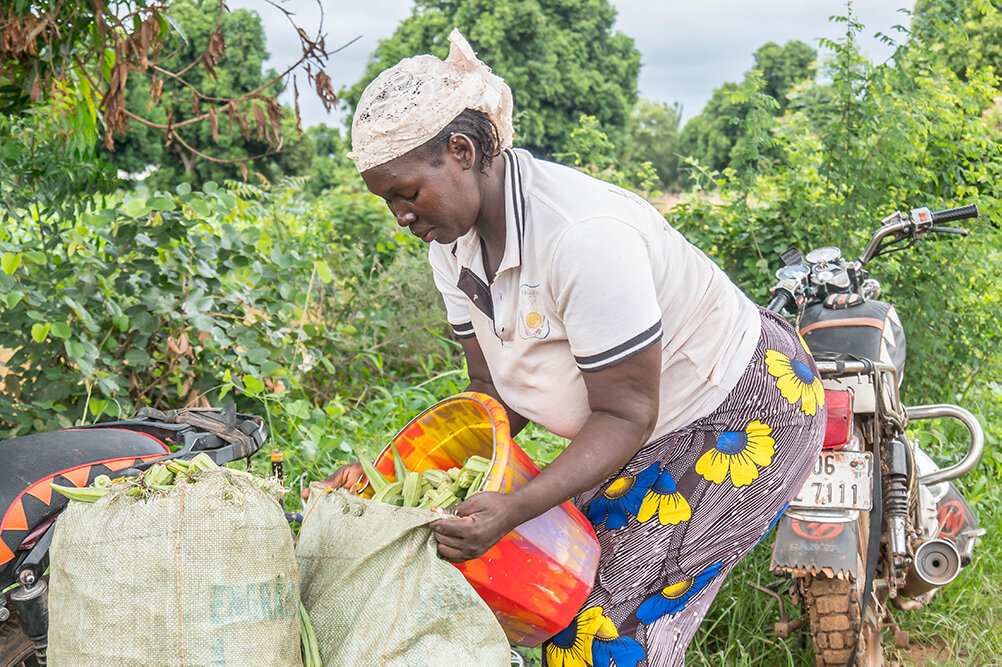
In return, LSPs gain increased visibility and recognition within their communities as providers of an essential social service. This positive image has also helped to strengthen their position in the market and expand their network of contacts, making their coaching and counseling activities more economically viable. By networking with other LSPs and municipalities, this advantage is multiplied further.
Ultimately, this approach has helped to create complementary and interconnected social networks between young people and LSPs. It’s a win-win that leaves both groups better equipped to navigate the challenges of the job market, build meaningful relationships, and create a more vibrant, connected and resilient community supporting youth insertion.
Navigating fragility: Empowering young adults to find their vision
Since the piloting of the approach in 2020, the promising results of the project have contrasted with the evolution of the security situation in Burkina Faso and Mozambique. Following two coups in 2022, young people in Burkina Faso are questioning their future. This feeling is shared by their peers in northern Mozambique, where insurrection and terrorist attacks are reaching new villages further south every month.
Can education and training really help mitigate the underlying causes of this fragility? It can, by promoting social cohesion and peace-building. Strengthening community connections also reinforces the civic engagement of young people, which has allowed local branches of the Youth Council or other civil society organizations to grow in Burkina Faso. The young people involved in Life Projects serve as positive examples for their neighbors, and those who have become entrepreneurs aspire to become LSPs and mentor their peers. As such, the approach looks beyond economic insertion and aims at the larger social and societal integration of young people.
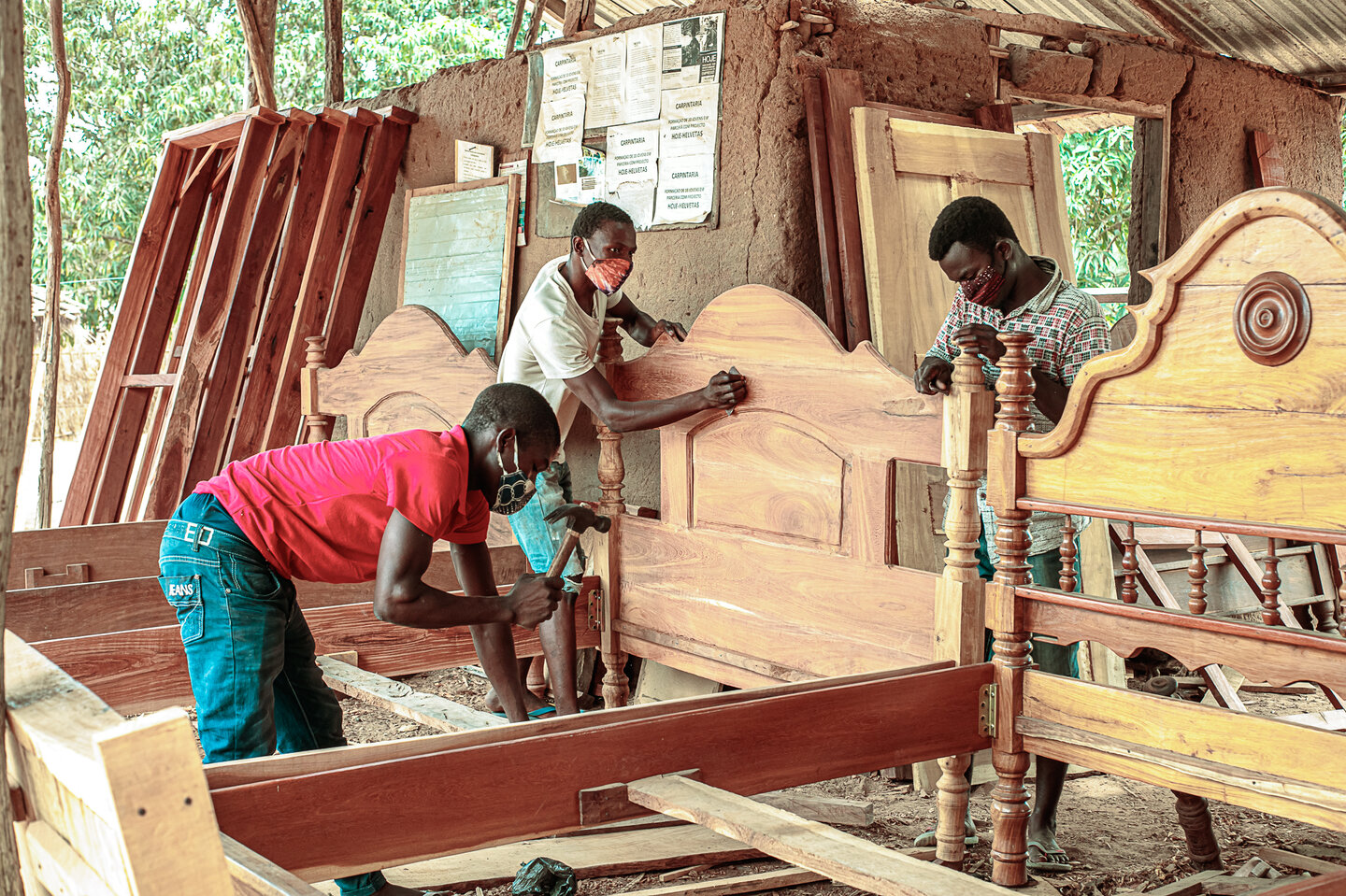
The Life Project Approach can also influence rural-urban migration and the brain drain that results from young people searching for alternatives in neighboring countries. Since many young people in Burkina Faso and other fragile regions relocate in search of better economic opportunities, the approach seeks to help them recognize and deepen their community networks, encouraging them to stay and become leaders in revitalizing their own communities. It also recognizes the critical importance of skills development in relation to migration and aims to foster economic stability. Similarly, the approach supports internally displaced persons who have recently settled in a new region and have lost their bearings by helping them create a new vision for the future.
Over the past few years, regions such as Burkina Faso and northern Mozambique have experienced a significant decline in opportunities available to young people. Their situation is not an exception. Helvetas’ offices in Mali, Haiti, Myanmar and Sri Lanka have also shown great interest in the Life Project Approach as their country contexts experience instability. Although Helvetas is enhancing its readiness by developing tools and action plans for Conflict Sensitive Program Management (CSPM), only local actors like LSPs, who are well-connected and recognized within the communities, have the proximity to young people’s reality to help them shape their future and find a career that is a fulfilling lifelong project.
About the Authors
Adrien Rebord is an Vocational Skills Development Advisor at Helvetas. Modibo Ouedraogo is a Programme Coordinator for Helvetas Burkina Faso. Rosaline Dacko is a Programme Coordinator for Helvetas Mali.

